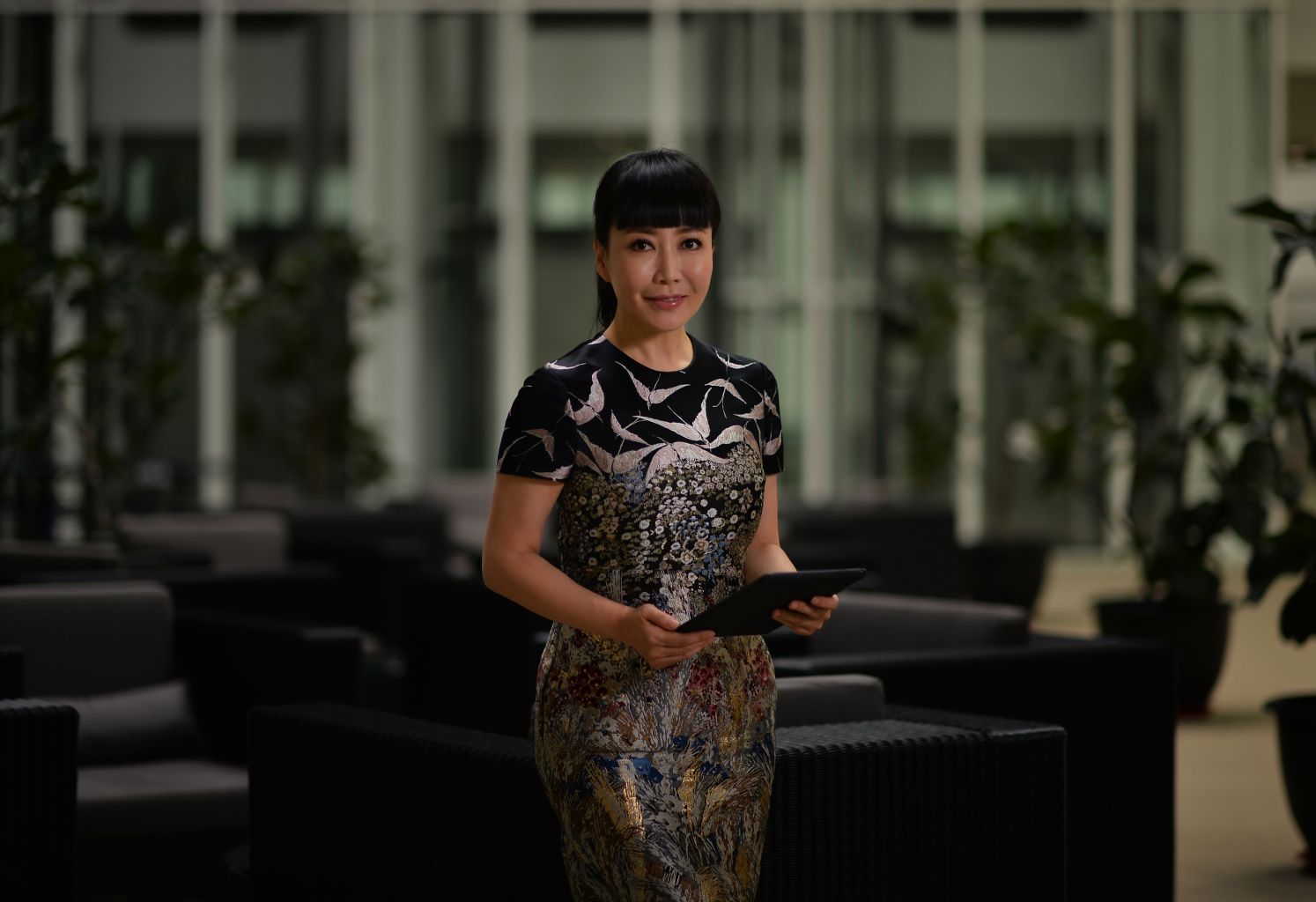SPONSORED CONTENT
Opening new doors
NTU has armed news presenter Zhang Haijie with new skills that will serve her well beyond the newsroom
Sign up now: Get tips on how to help your child succeed

Ms Zhang Haijie says that it will be helpful to pursue studies in different areas to potentially open doors to new opportunities.
PHOTO: CHONG JUN LIANG

A familiar face on television, senior producer and news presenter Zhang Haijie is no stranger to those who watch the Chinese news.
In 2005, she took a two-year break from her job to pursue a full-time Doctor of Philosophy (PhD) course in Chinese at Nanyang Technological University (NTU). But she completed her course on a part-time basis from 2008 to 2012 as she had returned to work.
Her decision to further her studies came about when the local media scene was undergoing some shifts - she was then an employee in SPH MediaWorks, which was merging with Mediacorp.
Says Ms Zhang, 46: "The move prompted me to consider my career options. Although it was still early, I could see the transformation of the traditional media sector, which is more apparent now today.
"My main concern was, if I were confronted by another major career disruption, do I stay on in the media sector or explore other areas outside?"
She felt that she needed to be adequately equipped with a different skill set should she leave the media industry.
The Chinese programme is one of five programmes offered at NTU's School of Humanities. As of last December, 83 candidates enrolled in the PhD programme.
Postgraduate students can explore multiple research perspectives, including inter-disciplinary approaches and the methodologies of the East and West.
Says Ms Zhang: "I think it is essential to pursue a postgraduate programme. If time is tight, at least try a part-time course.
"It is best to study before other commitments build up."
New ways to write
The PhD is Ms Zhang's second postgraduate degree.
In 2003, she pursued a one-year part-time master's degree in international management from the Australian National University while working shifts.
So it was with full knowledge of the challenges of juggling work and studies that she embarked on her PhD. She understood that despite the impending hectic schedule she would have to keep, the fruits of her labour would be worthwhile.
Lectures were held once a week for three hours, while the rest of her time was spent doing independent research.
She also had to adapt a different way of research and writing.
She says: "Compared to doing a masters thesis, the PhD dissertation required a lot more research and work.
"One thing I learnt was that everything you write must be properly supported by research and evidence."
Her dissertation focused on government policies of the Chinese government towards overseas Chinese.
While working on her dissertation, she learned that her research had to be strong enough to withstand scrutiny and challenges.
"This taught me the importance of going beyond superficial impressions and not to be hasty. I can also apply this principle to my daily work as an editor," she says.
Having been a journalist for 15 years, she understood the importance of substantiating what she writes with evidence, but it was tough initially to switch gears and return to academic writing.
She had to revise the foreword and introduction of her dissertation three times before her supervisor approved it.
"My supervisor would ask for the basis of my work, and the evidence or research to support what I wrote. A key question was what evidence or research do I have to support what I wrote," she says.
Through her research, she also learned about how overseas Chinese coped with the changes in China. In particular, she was inspired by the grit and perseverance of early entrepreneurs who took risks to build up their business and honed their business acumen.
Nurturing self-discipline
Another challenge Ms Zhang had to overcome was time management.
In 2008, her work shifts ended after midnight, so she would work on her dissertation after that till around 4am.
This led to frequent sleepless nights, but she felt they were "good training in discipline and perseverance".
Learning opportunities also came in the form of talks and seminars available to students, which she found were helpful in meeting other professionals.
She had regular academic exchanges with Dr Zheng Binghan, an associate professor in Chinese and translation studies in Durham University in the United Kingdom, who was then working as a teaching fellow in NTU.
She hopes to join a study group discussion that he is conducting in the UK next year.
Her advice to those considering a postgraduate course is to pursue an area of study that is different from one's specialisation.
She feels that this will help to expand one's knowledge and network, and potentially open doors to new opportunities in future.


